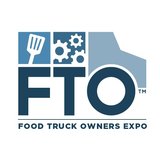Commentary
Passing the baton: Stepping back, but not far away
Judy Mottl assumes editorship of Food Truck Operator, bringing a helpful perspective to an entrepreneurial industry that requires a forum to address a variety of business management skills.

February 13, 2020 by Elliot Maras — Editor, Kiosk Marketplace & Vending Times
As the modern food truck industry continues its rapid expansion, new blood enters every aspect, including Food Truck Operator. The new decade begins on a promising note in many ways, from a growing economy and a new FTO editor, Judy Mottl.
Since Networld Media Group launched Food Truck Operator, in early 2017, to provide a forum for this exciting and dynamic industry, I have enjoyed getting to know our readers, sampling their diverse food and learning and sharing their inspiring stories. It has been invigorating.
And just as many of the entrepreneurs I've had the pleasure of knowing have taken on new career responsibilities at times, I, too, now begin a new chapter with the Networld Media Group family.
I now turn the editorship of Food Truck Operator to my capable colleague Judy as I assume the leadership of a publication for a closely related industry, Vending Times. What this means is that I will observe the multi-faceted convenience dining industry — a sector filled with entrepreneurs who seek creative solutions to challenges whose acquaintance I cherish — from a different vantage point.
Stepping back, but not far away
And as I focus my attention on vending, I won't be far away.
The vending and food truck industries have held a symbiotic relationship that precedes the advent of the modern gourmet food truck industry which came to fruition with the growth of social media. Food vending and food trucks both emerged in the post World War II era to provide meals to people at work sites — a function they continue to serve today.
Both industries consist of entrepreneurs who survive on their ability to meet and exceed customer expectations.
Then, as today, food trucks and vending operators often competed for the same customers. But at the same time, crossover has always been commonplace.
Just prior to the advent of the modern food truck movement, the country's national vending trade association (known as NAMA) assumed the management of an organization called the Mobile Industrial Caterers Association. This merger was born of the interaction between the two industries.
Put the past in proper perspective
But before discussing the exciting new food truck movement and the perspective a new editor brings to the industry, another word about the past.
Food truck discussions frequently use the term "roach coach" to refer to the food trucks of yesteryear. When a new movement emerges, there is a natural tendency to distance the past. But disparagement is unnecessary, and in this case, unwarranted.
As I step down from full-time responsibility on Food Truck Operator, I implore the industry to stop using the term stated above when referring to earlier food trucks. It is an unfair generalization. Irresponsible and incompetent operators did exist, as they do today, but they were not the majority. And competition, more than regulation, contained their influence.
What was really different back then was the uniformity of the food trucks. Most served construction sites and factories — locations that were far more dominant in our nation's economy than they are today. The clientele was culturally less diverse, as were culinary tastes. Most trucks sold pre-wrapped sandwiches and entrees.
Looking forward
But alas, a new day has arrived.
The marrying of mobile communication with mobile service has ushered in a foodservice venue that meets the needs of today's time-starved, mobile-connected consumer in ways that lend themselves to highly creative presentations.
Today's food trucks are largely driven by culinary passion, and they are offering consumers the most diverse menus ever available in a convenient setting at affordable prices.
Shortly after Food Truck Operator launched in 2017, my friend Paul Schlossberg in a blog characterized the new generation of food trucks as the "premiumization" of foodservice: "Premiumization creates the bridge between the desirability of the luxury world and the function and necessity of the mass market," he wrote.
The industry is still "finding its way" as the overwhelming majority of businesses are single-unit operations, and will always be so.
While national restaurant chains have managed to pare the ranks of independent brick-and-mortar restaurants over the last two decades, independent players continue to drive the rapidly expanding food truck scene.
An entrepreneur can launch a food truck with less than $100,000. And at the same time, it is very difficult, even with the help of technology, for a multi-unit organization to effectively manage a large number of trucks and ensure uniform product quality, customer service and sanitation. Hence, the independent operator will continue to define the food truck industry.
Which is why Food Truck Operator plays such an important role. The forum allows entrepreneurs to learn from one another and share best practices and mistakes to avoid.
Judy Mottl brings an important set of skills to Food Truck Operator. Having served for years as the editor of our sister site, Retail Customer Experience, she is well versed in the management and marketing skills that food truck operators need to master to survive. She is up-to-speed on social media, labor management, purchasing, marketing and logistics.
She is looking forward to working with this dynamic industry.
About Elliot Maras
Elliot Maras is the editor of Kiosk Marketplace and Vending Times. He brings three decades covering unattended retail and commercial foodservice.







